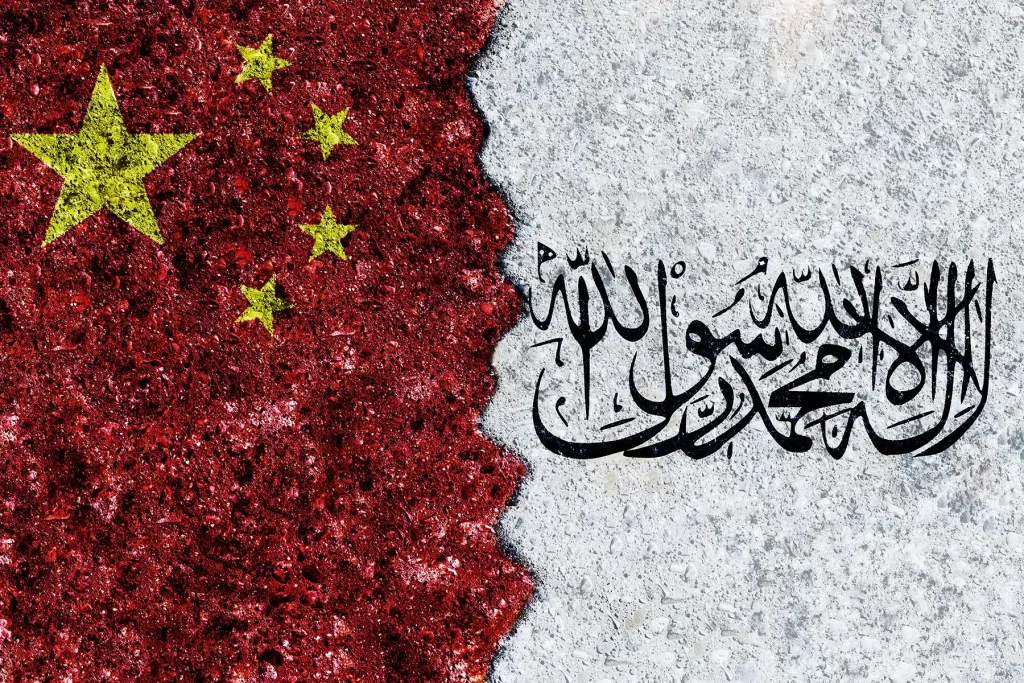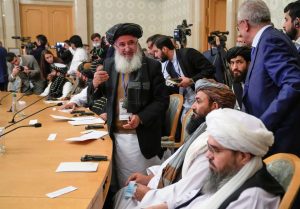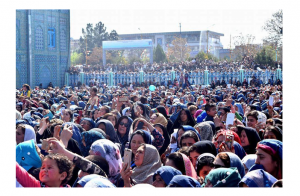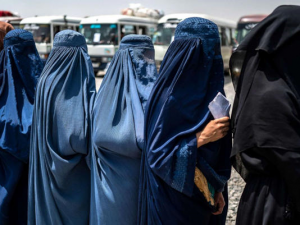Afghanistan’s status as a government and a member of the international community has been uncertain since the Taliban regained power. Despite the international community’s stance on the non-recognition of the Taliban administration, various governments involved in Afghanistan’s affairs are in direct or indirect contact with the group. For instance, the United States engages with the Taliban by providing financial support and aid through NGOs and the United Nations. Iran deals with factions within the Taliban, offering technical support, embassy handovers, and signing business contracts. Notably, China has maintained a distinct position and relationship with the Taliban.
China recently hosted the Taliban Foreign Minister, Mullah Amir Khan Muttaqi, during which the Chinese Foreign Minister, Wang Yi, pledged cooperation in constructing the Wakhan Corridor. China also appointed a new ambassador to Afghanistan, who formally presented his Letter of Credence to the Taliban Prime Minister. Moreover, China’s engagement in dubious mining contracts and sending experts and traders to assess economic activities have made China-Taliban relations unique. This article explores the media-reported relationship between China and the Taliban, focusing on the mining sector.
The Taliban has recently inked several economic agreements with China. In January of this year, a company named China-Afghan signed a contract to extract oil from the Amu oil field, committing to invest $145 million in this venture. The Taliban-controlled Bakhtar News Agency reported on January 7 that China-Afghan had commenced oil extraction in the Qashqari and Aq Darya areas of Sar-Pol Province.
According to media reports, the Taliban’s Foreign Minister, in a phone conversation with his Chinese counterpart, deemed the Amu River basin oil contract a significant achievement. He assured China that the Taliban would prevent any group, such as the Uyghur separatists known as the East Turkestan Islamic Movement (ETIP), residing in Afghanistan from using its soil against China.
The Taliban places a strong emphasis on mining, leveraging this national capital to engage with foreign players and fulfill their requirements. The Taliban’s Ministry of Mines and Petroleum (MoMP) has revealed that over the past two years, 200 mining contracts have been signed, surpassing the 126 contracts signed during the 20-year republic era. It is noteworthy that during the Taliban’s previous rule, no mining contracts were officially disclosed in the presence of the media. In contrast, all contracts were published with detailed information on the MoMP’s website during the republic period.
Following the collapse of the Afghan republic system, many foreign investors, especially those from Western countries, ceased their operations in Afghanistan. The United States and other Western nations imposed an economic embargo on Taliban-controlled Afghanistan, presenting an investment opportunity for China, Pakistan, and some regional countries. While these contractors do not officially recognize the Taliban regime, they are aware of the prevalent tyranny and daily human rights violations inside the country. However, these issues appear to be of lesser concern to them in light of the economic prospects Afghanistan presents.
Mes Aynak, the second-largest copper deposit globally, has been entrusted to Chinese companies under a contract signed in 2007. China pledged to invest approximately three billion dollars in Afghanistan. The contract obligated the Chinese company to construct a railway line, roads, electricity generation device, and a town with thousands of residential apartments. However, various security concerns, the presence of ancient monuments, and inadequate preparation led China to abstain from fulfilling its obligations. Experts cited the drop in copper prices on the world market as the primary reason for this delay. With the recent increase in copper prices, China has renewed its interest in this mine, boasting the world’s second-largest copper deposit.
The Ministry of Mines and Petroleum (MOMP) has announced that negotiations for copper extraction with the Chinese MCC company are in their final stages, and extraction work will commence soon, as reported by the Financial Times. Additionally, China’s Global Times stated that in early November 2022, MCC representatives visited Afghanistan on a special visa to inspect lithium mines. This delegation, working closely with the MOMP, conducted investigations in several provinces, including Nuristan. Yuhong Hui, director of China’s Economic Development and Trade Committee, expressed the country’s intent to begin work once necessary guarantees are in place.
Lithium, a highly efficient metal used in aerospace components, spacecraft, and batteries, is abundant in Afghanistan. The country possesses vast, untouched lithium mines spanning 900 km long and 200 km wide from Herat to Nuristan. These resources hold paramount importance for China’s economy.
Afghanistan is integral to China’s economic interests in the region. China’s investments in mines and transit align with this goal. Pakistan, China’s closest ally, plays a significant role, in providing guarantees and support to challenge India’s regional trade corridor initiative.
Moreover, the presence of terrorist groups in Afghanistan has allowed the Taliban to gain concessions from regional countries. These groups, once adversaries of the Afghan people, are now used by the Taliban as leverage against neighboring nations. China, particularly, employs the East Turkestan Islamic Movement (ETIM) as a bargaining tool. Established in Afghanistan in the 1990s and later dispersed to Pakistan’s tribal areas during the American presence, it united with the Taliban. China aims to eliminate the ETIM with the Taliban’s assistance, fostering its good relations with the group. The Chinese government views the ETIM as a significant security threat, even contemplating military intervention in Afghanistan to eradicate Uyghur fighters.
It remains uncertain whether these transactions between the Taliban and regional countries, notably China, will yield positive outcomes in the long run. The Taliban faces challenges in dealing with regional terrorist groups. Any action that jeopardizes these groups may cause divisions within the Taliban’s leadership. Consequently, the Taliban cannot fully comply with China’s political and intelligence demands. However, both China and other nations cooperating with the Taliban understand the impracticality of long-term compromises with a group lacking domestic legitimacy and global recognition. Future legitimate Afghan governments will likely annul these agreements. Nonetheless, to monitor Afghanistan’s current situation, track terrorist group activities, and exploit the country’s natural resources, parties maintain both overt and covert relations with the Taliban. In the case of China, these interactions extend to the point of practical official engagement.
Source: Hasht-e Sobh




